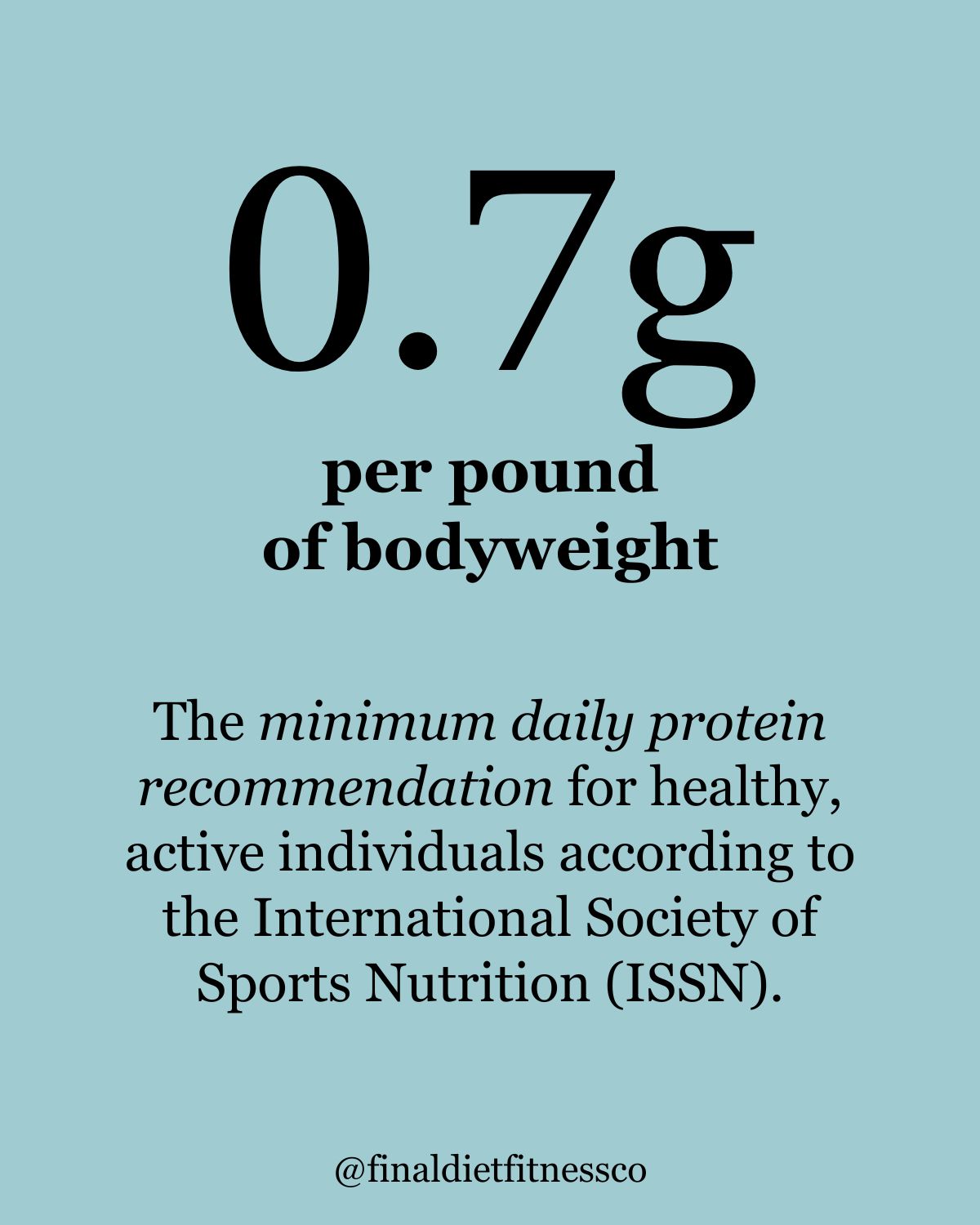
Protein is often hailed as the "king" of macronutrients for anyone looking to improve muscle mass, strength, and overall health. Whether you're lifting weights, competing in sports, or simply aiming to improve your fitness, getting enough protein is crucial for fueling your body’s growth and recovery. According to the International Society of Sports Nutrition (ISSN), the recommended daily protein intake for optimal muscle growth ranges from 0.7 to 1.0 grams per pound of body weight. However, recent studies suggest that competitive athletes may benefit from even more—up to 1.4 grams per pound. Let’s break down how much protein you really need, why it matters, and how to optimize your intake for maximum gains.
Protein Requirements for Muscle Growth and Repair
-
General Guidelines (0.7 to 1.0 grams per pound)
For most healthy, active individuals, the ISSN recommends a protein intake of 0.7 to 1.0 grams per pound of body weight daily to build and maintain muscle mass. This range is a solid foundation for those who exercise regularly and want to support their body’s muscle recovery and growth. -
Competitive Athletes (Up to 1.4 grams per pound)
Recent research suggests that competitive athletes, especially those in resistance training or sports that require intense physical exertion, may benefit from increasing their protein intake to 1.4 grams per pound. This higher amount can help enhance body composition, optimize muscle repair, and support overall athletic performance. -
Understanding the Protein Distribution Range
These protein recommendations are in line with the Institute of Medicine's acceptable macronutrient distribution range, which provides guidelines for balancing protein intake within a healthy diet. For individuals aiming to improve body composition or enhance performance, adjusting protein intake within this range can yield significant benefits.
Why Protein Matters for Fitness and Health
Protein isn't just for bodybuilders; it's an essential nutrient for everyone who wants to stay healthy and strong. Here's why it’s a cornerstone of your fitness journey:
-
Muscle Growth and Repair
When you engage in physical activities like strength training or high-intensity exercise, you create tiny tears in your muscle fibers. Protein helps repair these fibers, rebuilding them stronger and larger, which leads to increased muscle mass and strength. -
Improved Exercise Performance
Adequate protein intake supports optimal muscle function, which can boost endurance and overall exercise performance. If you’re training hard, you need the energy and repair mechanisms protein provides to maintain peak performance. -
Weight Management
Protein is highly satiating, which means it can help curb hunger and support weight management. It boosts your metabolism, helps with fat loss, and keeps you feeling full for longer. -
Overall Health and Well-Being
Protein plays a critical role in hormone production, immune function, enzyme activity, and maintaining healthy skin and hair. Its impact goes far beyond muscle growth, making it essential for your overall health.
How to Optimize Protein Intake
-
Timing Matters
Distribute your protein intake throughout the day to support muscle protein synthesis. Aim for at least 20–30 grams of protein per meal, especially after workouts when your muscles are most receptive to repair and growth. -
Prioritize Quality Sources
Opt for high-quality protein sources like lean meats, poultry, fish, eggs, dairy, beans, and legumes. For athletes or those looking to further boost their intake, consider protein supplements like whey or plant-based protein powders. -
Don’t Forget the Carbs and Fats
Protein is just one piece of the puzzle. For optimal muscle growth and recovery, balance your diet with healthy fats and complex carbohydrates to fuel your workouts and keep your body in an anabolic (growth) state.
Sample High-Protein Meals
- Breakfast: Scrambled eggs with spinach and avocado.
- Lunch: Grilled chicken breast with quinoa and roasted vegetables.
- Dinner: Baked salmon with sweet potatoes and broccoli.
- Snacks: Greek yogurt with mixed nuts or a protein shake post-workout.
Conclusion
Protein is a game-changer when it comes to building muscle, enhancing performance, and supporting overall health. Whether you're a competitive athlete or someone just looking to live a healthier lifestyle, optimizing your protein intake is a simple yet effective way to support your fitness goals. With the right amount of protein in your diet, you’ll fuel your body for success and watch your gains soar!







